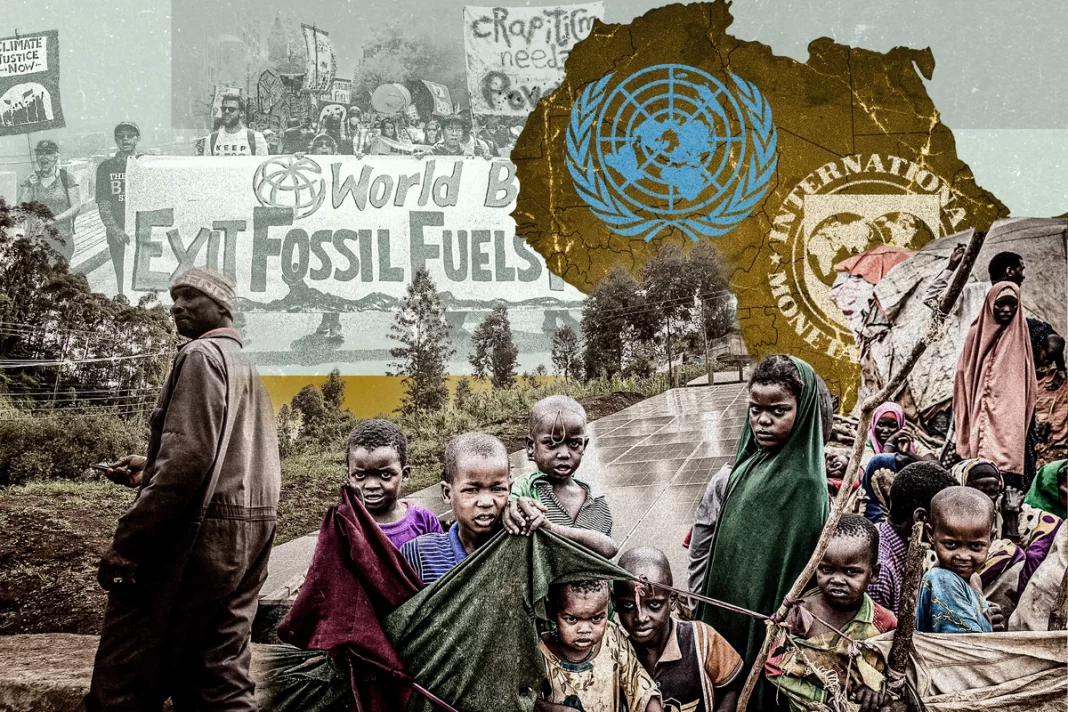‘We have far bigger problems—people sleeping hungry, very poor people around me—I’m more worried about that than I’ll ever be worried about climate change.’
Under a blazing Kenyan sun, elderly women toil on their hands and knees in the reddish-brown clay, separating the choking weeds from the small, green shoots of a finger millet crop. The women are barehanded and barefoot, and they work from 8 a.m. to 5 p.m. or 6 p.m. at night. Clearing a small field takes three days.
“A combine harvester could replace 1,000 people,” Jusper Machogu, an agricultural engineer and farmer in Kenya, told The Epoch Times. “It makes me sad whenever I see my mom wading through millet. We have women kneeling down and uprooting weeds throughout the farm all day, and it’s sunny. Those machines would change our lives.”
But farmers like Mr. Machogu can’t get a combine harvester. Even if they could afford one from the meager salaries they make selling crops, Western nations’ climate policies prevent Africans from achieving what the West already has—modernization and prosperity.
In November 2023, to reduce carbon dioxide emissions from fossil fuel use, the President of the Republic of Kenya, William Ruto, cut subsidies for fertilizer, fuel, and electricity for the 2023/2024 financial year. He did so at the behest of the International Monetary Fund (IMF), a financial agency of the United Nations (U.N.).
“I come from a community where people use cow dung to fertilize their farms,” Mr. Machogu said. “And the reason for that is because last year, the government of Kenya decided that they were going to listen to what the IMF was telling them. It was telling them to end fertilizer subsidies.
“You can imagine how that’s going to impact farmers. The fertilizer prices went up by almost two times. We have very poor people around here. So, if I was [purchasing] 20 kilos for my farm, I’m forced to get 10 kilos now.
“Most people have gone back to using cow dung, which is not a good nitrogenous fertilizer for their crop. You can’t compare urea, with a 46 percent nitrogenous content, to cow dung, with only four percent. It doesn’t make sense.”
By Katie Spence









